Arts & Entertainment
Nominees (and 2 winners) for 2021 Golden Globes announced
A rainbow of LGBTQIA nominees….and winners
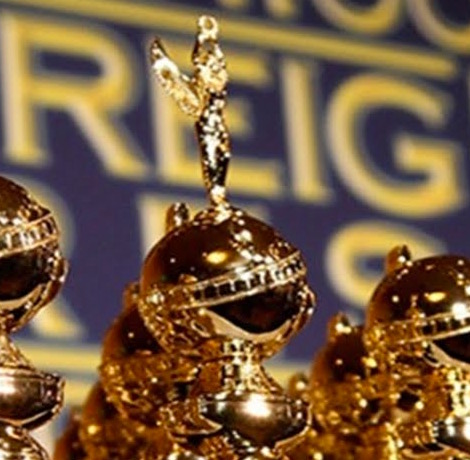
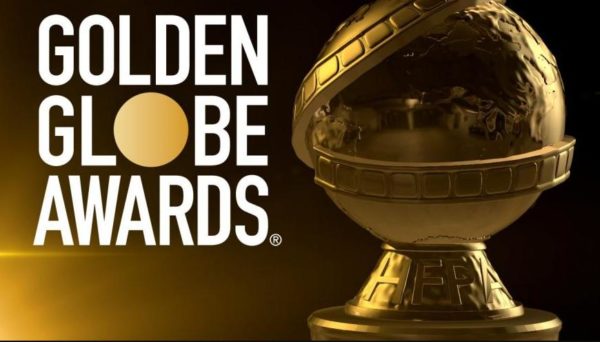
The Golden Globes 2021 nominees were announced today in Los Angeles and there were a multitude of LGBTQ actors, films, television and other nominees announced. Two LGBTQ-inclusive films, The Life Ahead and Two Of Us, were nominated for Best Picture.
The Golden Globes 2021 nominees were announced today in Los Angeles and there were a multitude of LGBTQ actors, characters, films, television and other nominees announced. Two LGBTQ-inclusive films, The Life Ahead and Two Of Us, were nominated for Best Picture.
In truth, it’s somewhat difficult to single out which of this year’s slate count as nods to LGBTQ inclusion. Thanks to ongoing pressure from advocacy groups like GLAAD and growing public demand via social media and other platforms, there’s a growing queer presence in the content produced by the Hollywood machine; LGBTQ characters and/or creative talent are part of the mix in multiple titles throughout the list. In just the four Best Picture categories alone, Promising Young Woman, Music, The Prom, Onward, and the aforementionedThe Life Ahead and Two of Us can be considered queer or queer-adjacent. When you consider all the other categories as well, keeping track of the LGBTQ connections becomes a challenge.
That, of course, is nothing to complain about. It’s a sign that decades of media invisibility for non hetero-and-cis-normative people and their experiences are at long last giving way to an era of increased visibility.
Still, there is at least one eyebrow-raiser.
A disquieting note comes from the nomination of James Corden as Best Actor in a Musical or Comedy Motion Picture, for his role as a gay Broadway actor in Ryan Murphy’s movie adaptation of The Prom. Corden identifies as straight, and despite his status as a long-standing and supportive ally, his performance in the film has been criticized by many observers as leaning heavily into the realm of stereotype and caricature. Add to this the continuing discussion around straight actors playing non-straight roles, and the nomination – already a surprise, at least in part because of the notable snub of Corden’s co-star Meryl Streep in the Best Actress category – has stirred controversy, as well.
Corden is not the only nominee, however, who is being honored for “playing gay.” Rosamund Pike, who is straight, earned her Best Actress in a Drama nod for playing a lesbian con artist; in addition, performers Viola Davis (Ma Rainey’s Black Bottom) and Andra Day (The United States vs. Billie Holliday), both nominated for playing real-life musical icons in films that address their bisexuality, and Jodie Comer, nominated once more for her acclaimed work as a lesbian assassin in the Hulu series Killing Eve, have never publicly identified as anything other than straight. These nominations have not met with the same level of vocal criticism levied at Corden’s nod. Pike, Davis and Day will all face off against each other in their category.
Dwelling on the problematic, as tempting as it is, overshadows the considerable triumph represented by the impressive score of Schitt’s Creek. The beloved Canadian sitcom has already made history by sweeping all its eligible acting categories at last year’s Emmy Awards for its final season. It is now positioned for a possible repetition of that feat, with series stars Eugene Levy, Catherine O’Hara, Dan Levy, and Annie Murphy in the running in the Television Comedy division for Best Leading Actor, Best Leading Actress, Best Supporting Actor, and Best Supporting Actress, respectively. Levy, playing a pansexual-identified character who becomes half of arguably one of television’s all-time favorite same-sex couples to date, is gay in real life. The show is also up for Best Comedy or Musical Television Series.
As for the rest of the lineup, here’s a breakdown of the other most notable LGBTQ-relevant nominees:
The Best Television Series Drama category includes two shows featuring LGBTQ storylines and characters, Netflix’s Ratched and HBO Max’s Lovecraft Country.
Out actress Sarah Paulson joins previous winner Comer in the running for Television Drama Best Actress, nominated for the title role in Ratched. The series also picked up a nod for out actress Cynthia Nixon in the Supporting Actress category.
Out actor Jim Parsons was tapped as a contender for Best Supporting Actor for his role in Netflix’s Hollywood. Though the show is a drama, he will be competing directly against Levy for the win, since the Golden Globes lump supporting performances together in a single category rather than differentiating between drama and comedy, as they do for the leading players.
In the Best Comedy Series category, The Flight Attendant, a popular HBO Max show featuring two gay men among its cast of major characters, picked up a nomination.
On the Film side, while the nominees for Best Picture (Drama) don’t include any notable LGBTQ storylines or characters, one of them, Promising Young Woman, does feature transgender actress Laverne Cox in a significant supporting role. The Prom received a nod in the Best Picture (Comedy or Musical) race; in addition to Corden’s role, the film features a number of other queer characters, as well as multiple out performers, and its story centers on the efforts of a lesbian teenager to force her high school to allow her to take her girlfriend to the senior prom. In the same category, Music, written and directed by out bisexual singer/songwriter Sia, also received a nomination. The inclusion of both films in that race were something of a surprise – especially the latter, given that Sia’s acclaimed cinematic debut is still mostly unseen by all but a few industry insiders.
Up for Best Animated Picture is Disney/Pixar’s Onward, which won praise for its casual inclusion of an openly-identified gay character – voiced by out actress Lena Waithe – in a minor role.
As mentioned above, the Best Foreign Language Film category includes The Life Ahead, an Italian drama starring cinema icon Sophia Loren which also features a transgender leading character, played by trans actress Abril Zamora. It will compete with France’s Two of Us, a drama about longtime lesbian lovers who face separation due to a health crisis.
In the Best Supporting Actress Category (again, as with television, the Globes combine both dramatic and comedic films for supporting roles), out actress Jodie Foster is up for the prize for her work in The Mauritanian.
Also of note: out producer/director Ryan Murphy, whose body of work has established himself as one of the de facto leaders in the effort to claim space for LGBTQ people and narratives in mainstream entertainment culture, has an impressive three projects represented in this year’s nominations: Ratched, Hollywood, and The Prom. His film of The Boys in the Band, however, is one of many worthy films and shows to be snubbed this year – a particularly egregious omission in light of the presence of titles like The Undoing, Emily in Paris, and Borat Subsequent Moviefilm among the honorees, all of which received mixed critical and audience reception, at best. If we’re being fair, the same could be said of Murphy’s three nominated shows and films, though each found popularity with enthusiastic fans.
Lastly, the recipients of this year’s two honorary awards are each notable for their LGBTQ connections. Screen legend Jane Fonda, who will be honored with the Cecil B. deMille Award, is one of the stars of Netflix’s extremely LGBTQ-friendly Grace and Frankie, while Carol Burnett Award-winner Norman Lear has been lauded for his many groundbreaking contributions toward inclusion in the classic sitcoms he has created and developed in a career that spans over 70 years.
Hosted by Tina Fey and Amy Poehler, the 78th Annual Golden Globe Awards will air live coast to coast on Sunday, Feb. 28 from 8-11 p.m. ET/5-8 p.m. PT on NBC. Poehler will host the awards show from the Beverly Hilton in Los Angeles, where the Golden Globes are typically held, while Fey will be set up in The Rainbow Room, which is inside NBC’s corporate headquarters at 30 Rockefeller Plaza in New York City. Jane Fonda will receive this year’s Cecil B. DeMille Award and Norman Lear will be awarded the Carol Burnett Award.
The complete list of nominees is below.
Best Picture Drama
The Father
Mank
Nomadland
Promising Young Woman
The Trial of the Chicago 7
Best Picture – Musical/Comedy
Borat Subsequent Moviefilm
Hamilton
Music
Palm Springs
The Prom
Best Actress – Motion Picture Drama
Viola Davis Ma Rainey’s Black Bottom
Andra Day United States vs. Billie Holiday
Vanessa Kirby Pieces of a Woman
Frances McDormand Nomadland
Carey Mulligan Promising Young Woman
Best Actor – Motion Picture Drama
Riz Ahmed Sound of Metal
Chadwick Boseman Ma Rainey’s Black Bottom
Anthony Hopkins The Father
Gary Oldman Mank
Tahar Rahim The Mauritanian
Best Actress – Motion Picture – Musical/Comedy
Maria Bakalova for Borat Subsequent Moviefilm
Kate Hudson for Music
Michelle Pfeiffer for French Exit
Rosamund PikeI for Care A Lot
Anya Taylor-Joy for Emma.
Best Actor – Motion Picture – Musical/Comedy
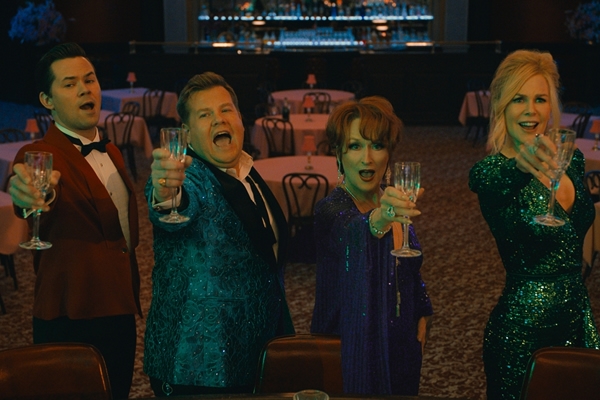
Sacha Baron CohenBorat Subsequent Moviefilm
James Corden The Prom
Lin-Manuel Mirandafor Hamilton
Dev Patel for The Personal History of David Copperfield
Andy Samberg for Palm Springs
Best Supporting Actress – Motion Picture
Glenn Close for Hillbilly Elegy
Olivia Colman for The Father
Jodie Foster for The Mauritanian
Amanda Seyfried for Mank
Helena Zengel for News of the World
Best Supporting Actor – Motion Picture
Sacha Baron Cohen, The Trial of the Chicago 7
Daniel Kaluuya for Judas and the Black Messiah
Jared Leto for The Little Things
Bill Murray for On The Rocks
Leslie Odom Jr.in One Night in Miami…
Best Director Motion Picture
Emerald Fennell for Promising Young Woman
David Fincher for Mank
Regina King for One Night in Miami…
Aaron Sorkin for The Trial of the Chicago 7
Chloé Zhao for Nomadland
Best Screenplay Motion Picture
Emerald Fennell for Promising Young Woman
Jack Fincher for Mank
Aaron Sorkin for The Trial of the Chicago 7
Christopher Hampton,Florian Zeller for The Father
Chloé Zhao for Nomadland
Best Picture – Animated
The Croods: A New Age
Onward
Over the Moon
Soul
Wolfwalkers
Best Picture – Foreign Language
Best Score Motion Picture
Alexandre Desplat The Midnight Sky
Ludwig Göransson, Tenet
James Newton Howard, News of the World
Atticus Ross,Trent Reznor for Mank
Jon Batiste,Atticus Ross,Trent Reznor for Soul
Judas and the Black Messiah, Fight For You
The United States vs. Billie Holiday, Tigress & Tweed
Best Drama Series
The Crown
Lovecraft Country
The Mandalorian
Ozark
Ratched
Best Musical/Comedy Series
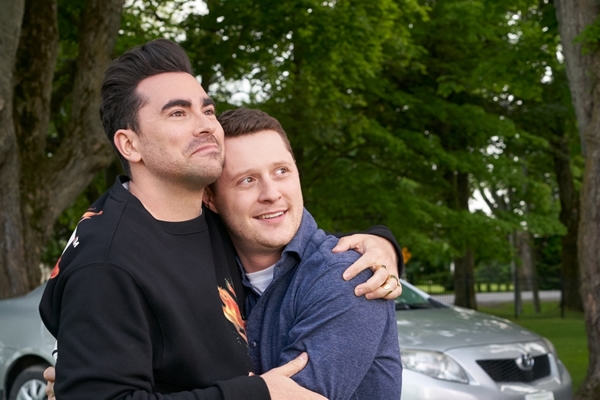
Emily in Paris
The Flight Attendant
The Great
Schitt’s Creek
Ted Lasso
Best Television Motion Picture
Normal People
The Queen’s Gambit
Small Axe
Undoing, The
Unorthodox
Best Actress – Television Motion Picture
Cate Blanchett for Mrs. America
Daisy Edgar-Jones for Normal People
Shira Haas for Unorthodox
Nicole Kidman for The Undoing
Anya Taylor-Joy for The Queen’s Gambit
Best Actor – Television Motion Picture
Bryan Cranston for Your Honor
Jeff Daniels, The Comey Rule
Hugh Grant The Undoing
Ethan Hawke for The Good Lord Bird
Mark Ruffalo for I Know This Much Is True
Best Television Actress – Drama Series
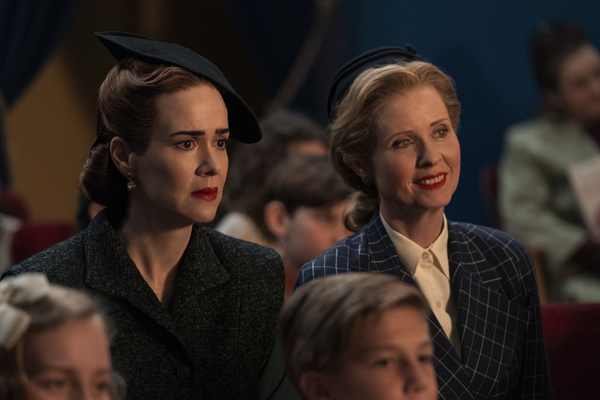
Olivia Colman, The Crown
Jodie Comer, Killing Eve
Emma Corrin, The Crown
Laura Linney, Ozark
Sarah Paulson, Ratched
Best Television Actor – Drama Series
Jason Bateman, Ozark
Josh O’Connor, The Crown
Bob Odenkirk, Better Call Saul
Al Pacino, Hunters
Matthew Rhys, Perry Mason
Best Television Actress – Musical/Comedy Series
Lily Collins, Emily in Paris
Kaley Cuoco, Flight Attendant
Elle Fanning, The Great
Jane Levy, Zoey’s Extraordinary Playlist
Catherine O’Hara, Schitt’s Creek
Best Television Actor – Musical/Comedy Series
Don Cheadle, Black Monday
Nicholas Hoult, The Great
Eugene Levy, Schitt’s Creek
Jason Sudeikis, Ted Lasso
Ramy Youssef, Ramy
Best Supporting Actress – Television
Gillian Anderson, The Crown
Helena Bonham Carter, The Crown
Julia Garner, Ozark
Annie Murphy, Schitt’s Creek
Cynthia Nixon, Ratched
Best Supporting Actor – Television
John Boyega, Small Axe
Brendan Gleeson, The Comey Rule
Daniel Levy, Schitt’s Creek
Jim Parsons, Hollywood
Donald Sutherland, The Undoing
Cecil B. deMille Award

2021 Winner: Jane Fonda
Carol Burnett Award
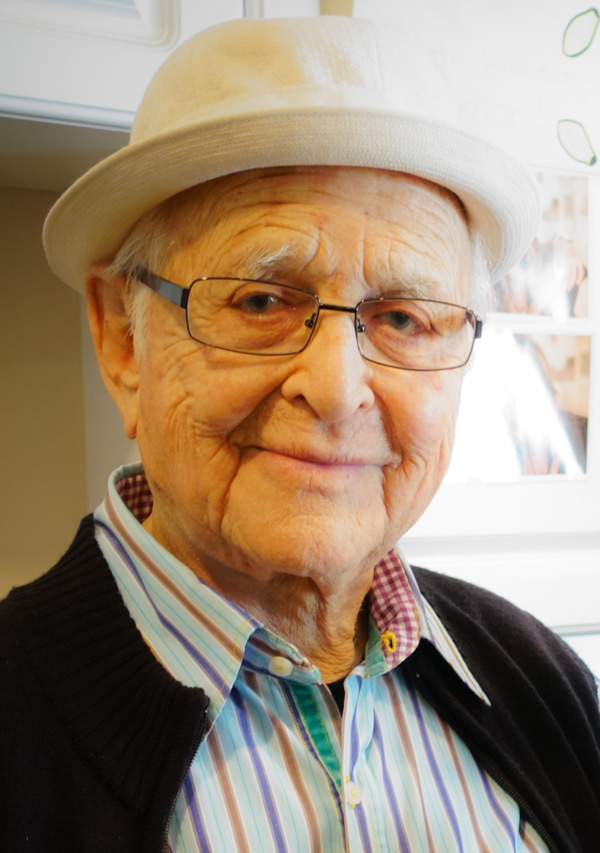
2021 Winner: Norman Lear
Books
Love or fear flying you’ll devour ‘Why Fly’
New book chronicles a lifetime obsession with aircraft

‘Why Fly’
By Caroline Paul
c. 2026, Bloomsbury
$27.99/256 pages
Tray table folded up.
Check. Your seat is in the upright position, the airflow above your head is just the way you like it, and you’re ready to go. The flight crew is making final preparations. The lights are off and the plane is backing up. All you need now is “Why Fly” by Caroline Paul, and buckle up.

When she was very young, Paul was “obsessed” with tales of adventure, devouring accounts written by men of their derring-do. The only female adventure-seeker she knew about then was Amelia Earhart; later, she learned of other adventuresome women, including aviatrix Bessie Coleman, and Paul was transfixed.
Time passed; Paul grew up to create a life of adventure all her own.
Then, the year her marriage started to fracture, she switched her obsession from general exploits to flight.
Specifically, Paul loves experimental aircraft, some of which, like her “trike,” can be made from a kit at home. Others, like Woodstock, her beloved yellow gyrocopter, are major purchases that operate under different FAA rules. All flying has rules, she says, even if it seems like it should be as freewheeling as the birds it mimics.
She loves the pre-flight checklist, which is pure anticipation as well as a series of safety measures; if only a relationship had the same ritual. Paul loves her hangar, as a place of comfort and for flight in all senses of the word. She enjoys thinking about historic tales of flying, going back before the Wright Brothers, and including a man who went aloft on a lawn chair via helium-filled weather balloons.
The mere idea that she can fly any time is like a gift to Paul.
She knows a lot of people are terrified of flying, but it’s near totally safe: generally, there’s a one in almost 14 million chance of perishing in a commercial airline disaster – although, to Paul’s embarrassment and her dismay, it’s possible that both the smallest planes and the grandest loves might crash.
If you’re a fan of flying, you know what to do here. If you fear it, pry your fingernails off the armrests, take a deep breath, and head to the shelves. “Why Fly” might help you change your mind.
It’s not just that author Caroline Paul enjoys being airborne, and she tells you. It’s not that she’s honest in her explanations of being in love and being aloft. It’s the meditative aura you’ll get as you’re reading this book that makes it so appealing, despite the sometimes technical information that may flummox you between the Zen-ness. It’s not overwhelming; it mixes well with the history Paul includes, biographies, the science, heartbreak, and exciting tales of adventure and risk, but it’s there. Readers and romantics who love the outdoors, can’t resist a good mountain, and crave activity won’t mind it, though, not at all.
If you own a plane – or want to – you’ll want this book, too. It’s a great waiting-at-the-airport tale, or a tuck-in-your-suitcase-for-later read. Find “Why Fly” and you’ll see that it’s an upright kind of book.
The Blade may receive commissions from qualifying purchases made via this post.
Theater
Out actor Kevin Cahoon on starring role in ‘Chez Joey’
Arena production adapted from Broadway classic ‘Pal Joey’

‘Chez Joey’
Through March 15
Arena Stage
1101 Sixth St., S.W.
Tickets start at $93
Arenastage.org
As Melvin Snyder in the new musical “Chez Joey,” out actor Kevin Cahoon plays a showbiz society columnist who goes by the name Mrs. Knickerbocker. He functions as a sort of liaison between café society and Chicago’s Black jazz scene circa 1940s. It’s a fun part replete with varied insights, music, and dance.
“Chez Joey” is adapted from the Broadway classic “Pal Joey” by Richard Rodgers and Lorenz Hart. It’s inspired by John O’Hara’s stories based on the exploits of a small-time nightclub singer published in The New Yorker.
A warm and humorous man, Cahoon loves his work. At just six, he began his career as a rodeo clown in Houston. He won the Star Search teen division at 13 singing songs like “Some People” from “Gypsy.” He studied theater at New York University and soon after graduating set to work playing sidekicks and comedic roles.
Over the years, Cahoon has played numerous queer parts in stage productions including “Hedwig and the Angry Inch,” “La Cage aux Folles,” “Rocky Horror” as well as Peanut in “Shucked,” and George the keyboardist in “The Wedding Singer,” “a sort of unicorn of its time,” says Cahoon.
Co-directed by Tony Goldwyn and the great Savion Glover, “Chez Joey” is a terrific and fun show filled with loads of talent. Its relevant new book is by Richard Lagravenese.
On a recent Monday off from work, Cahoon shared some thoughts on past and current happenings.
WASHINGTON BLADE: Is there a through line from Kevin, the six-year-old rodeo clown, to who we see now at Arena Stage?
KEVIN CAHOON: Anytime I want to land a joke in a theater piece it goes back to that rodeo clown. It doesn’t matter if it’s Arena’s intimate Kreeger Theatre or the big rodeo at the huge Houston Astrodome.
I was in the middle stadium and there was an announcer — a scene partner really. And we were doing a back and forth in hopes of getting laughs. At that young age I was trying to understand what it takes to get laughs. It’s all about timing. Every line.
BLADE: Originally, your part in “Chez Joey” Melvin was Melba who sings “Zip,” a clever woman reporter’s song. It was sort of a star feature, where they could just pop in a star in the run of “Pal Joey.”
CAHOON: That’s right. And in former versions it was played by Martha Plimpton and before her Elaine Stritch. For “Chez Joey,” we switched gender and storyline.
We attempted to do “Zip” up until two days before we had an audience at Arena. Unexpectedly they cut “Zip” and replaced it with a fun number called “I Like to Recognize the Tune,” a song more connected to the story.
BLADE: Wow. You must be a quick study.
CAHOON: Well, we’re working with a great band.
BLADE: You’ve played a lot of queer parts. Any thoughts on queer representation?
CAHOON: Oh yes, definitely. And I’ve been very lucky that I’ve had the chance to portray these characters and introduce them to the rest of the world. I feel honored.
After originating Edna, the hyena on Broadway in “The Lion King,” I left that to do “Hedwig and the Angry Inch” as standby for John Cameron Mitchell, doing one show a week for him.
Everyone thought I was crazy to leave the biggest musical of our time with a personal contract and getting paid more money that I’d ever made to get $400 a week at the downtown Jane Street Theatre in a dicey neighborhood.
At the time, I really felt like I was with cool kids. I guess I was. And I never regretted it.
BLADE: When you play new parts, do you create new backstories for the role?
CAHOON: Every single time! For Melvin, I suggested a line about chorus boys on Lakeshore Drive.
BLADE: What’s up next for Kevin Cahoon?
CAHOON: I’m about to do the New York Theatre Workshop Gala; I’ve been doing it for nine years in a row. It’s a huge job. I’ll also be producing the “Cats: The Jellicle Ball” opening on Broadway this spring; it’s a queer-centric uptown vogue ball with gay actor André de Shields reprising his role as “Old Deuteronomy.”
BLADE: There’s a huge amount of talent onstage in “Chez Joey.”
CAHOON: There is. I’m sharing a dressing room with Myles Frost who plays Joey. He won accolades for playing Michael Jackson on Broadway. We’ve become great friends. He’s a miracle to watch on stage. And Awa [Sal Secka], a D.C. local, is great. Every night the audience falls head over heels for her. When this show goes to New York, Awa will, no doubt, be a giant star.
BLADE: Do you think “Chez Joey” might be Broadway bound?
CAHOON: I have a good feeling it is. I’ve done shows out of town that have high hopes and pedigree, but don’t necessarily make it. “Chez Joey” is a small production, it’s funny, and audiences seem to love it.

The Capital Pride Alliance held the annual Pride Reveal event at The Schuyler at The Hamilton Hotel on Thursday, Feb. 26. The theme for this year’s Capital Pride was announced: “Exist. Resist. Have the audacity!”
(Washington Blade photos by Michael Key)























-

 India4 days ago
India4 days agoActivists push for better counting of transgender Indians in 2026 Census
-

 Advice4 days ago
Advice4 days agoDry January has isolated me from my friends
-

 District of Columbia4 days ago
District of Columbia4 days agoCapital Pride reveals 2026 theme
-

 National4 days ago
National4 days agoAfter layoffs at Advocate, parent company acquires ‘Them’ from Conde Nast




















